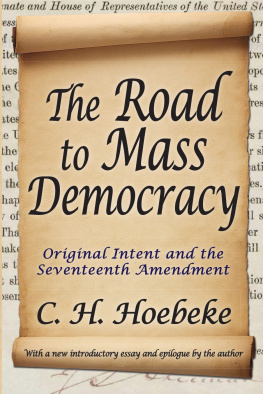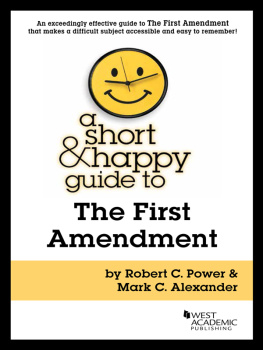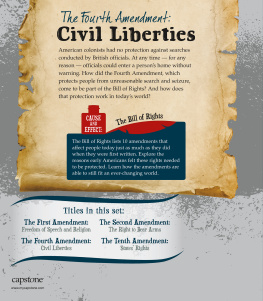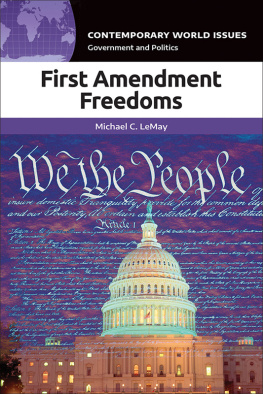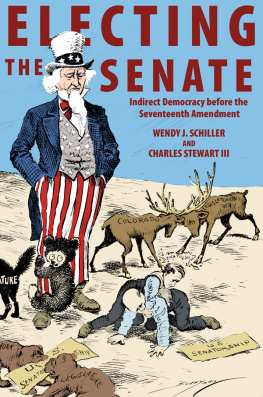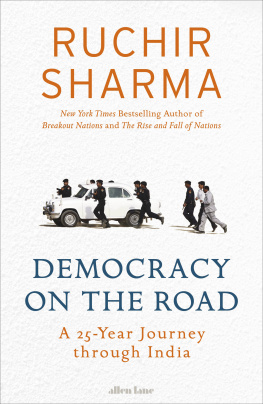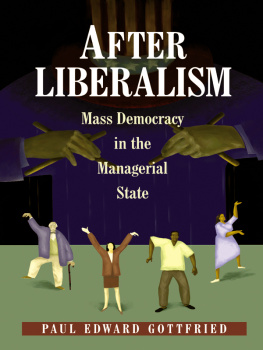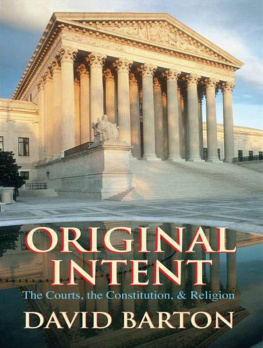Originally published in 1995 by Transaction Publishers
Published 2014 by Transaction Publishers
Published 2017 by Routledge
2 Park Square, Milton Park, Abingdon, Oxon OX14 4RN
711 Third Avenue, New York, NY 10017, USA
Routledge is an imprint of the Taylor & Francis Group, an informa business
New material this edition copyright 2014 by Taylor & Francis.
All rights reserved. No part of this book may be reprinted or reproduced or utilised in any form or by any electronic, mechanical, or other means, now known or hereafter invented, including photocopying and recording, or in any information storage or retrieval system, without permission in writing from the publishers.
Notice:
Product or corporate names may be trademarks or registered trademarks, and are used only for identification and explanation without intent to infringe.
Library of Congress Catalog Number: 2014020897
Library of Congress Cataloging-in-Publication Data
Hoebeke, C. H. (Christopher Hyde), 1960-
The road to mass democracy : original intent and the seventeenth amendment / C. H. Hoebeke.
pages cm
Includes bibliographical references and index.
ISBN 978-1-4128-5480-1
1. United States. Congress. Senate--History. 2. United States. Congress. Senate--Elections. 3. United States. Constitution. 17th Amendment. 4. Democracy--United States--History. 5. Representative government and representation--United States--History.
6. Legislative bodies--Upper chambers. I. Title.
JK1161.H55 2014 328.730734--dc23
2014020897
ISBN 13: 978-1-56000-217-8 (hbk)
ISBN 13: 978-1-4128-5480-1 (pbk)
An Introductory Essay
The Paradox of Popular Sovereignty
One of the perks of working in an international university is talking with students from around the world. Only days before the military coup in Cairo last summer, I asked one of our Egyptian students his opinion of the tumultuous events in his country. He had already earned his masters degree several months before and was auditing a second area of studies for as long as his father could afford to keep him safe in Sweden, or until civil conditions had stabilized at home. The young man was unabashed in expressing his hopes for the army to step in and take control from the elected government: Democracy doesnt work in our country.
In the building where I live work two cleaning women from the Balkans. My wife occasionally talks with them about our respective homelands. One is a Macedonian whose family fled the ethnic violence that followed the breakup of Yugoslavia. The other is a Serb who grew up in Bosnia. Her father disappeared and is presumed dead and buried somewhere in a mass grave. Although they acknowledge that things have improved in recent years, they maintain that tensions still seethe, the infrastructure is a wreck, and there are no jobs. Neither woman is old enough to have lived under the iron rule of Marshal Tito, but both nostalgically remember a more authoritarian, yet more peaceful time, a time when we were all Yugos.
These conversations do not conclusively prove anything other than that democracy is not the universal aspiration that US secretaries of state might assume it to be. Nevertheless, a categorical proposition is false, so the logicians tell us, if a single example to the contrary is true, and the modern world can furnish millions of such contrary examples, of men and woman for whom having an equal say in their countrys political direction is not as high a priority as having public order, a means of livelihood, and a degree of certainty that the rules around which they plan their commerce and social transactions will be the same tomorrow as they are today and enforced equally for one as for all.
Indeed, judging from American political events in the two decades since The Road to Mass Democracy was originally published, these prerequisites of liberty do not seem to adhere merely from the universal right of suffrage. Despite the fact that practically any warm body not convicted of a felony may cast a vote for the highest office in the land, the government of the United States is more intrusive and more arbitrary than at any time in its history. The solicitation of votes by our increasingly poll-driven, image-conscious politicians, obliged at all times to appear in public as regular folk, coincides miraculously with governments runaway legislation, regulation, confiscations, violations, currency inflation, and war.
However widely accepted, or at least tolerated, by the mass electorate, the regular activities of the regime in Washington are not merely unconstitutional. They are anti-constitutional, opposed to the purposes for which the Constitution was created. Take, for example, the founders concern about mutability of legislation. An often expressed fear at the constitutional convention and in the ratification debates was that the proliferation of new laws, which were frequently repealed, superseded, or in conflict with other laws, made it impossible for the average citizen to know the rules or the consequences of not observing them. Two-and-a-quarter centuries after checks and balances were instituted to inhibit this excess of lawmaking, it is the members of Congress, themselves, who can not keep pace, as they routinely ratify volumes of legislation they have not even read.
According to those checks and balances, All legislative powers herein granted shall be vested in a Congress of the United States. It is simply no longer true. Our representatives in Washington could not churn out such a massive heap of enactments without the army of unelected staffers and lobbyists who in reality control the legislative process. Of course, without vetting and discussion by constituted authority, it is a lawless legislative process, adding new meaning to the Government Publication Offices Statutes at Large. And this colossal compendium of US legislation does not include the thousands of executive orders, judicial rulings, and regulatory agency decrees that have the force of law, blindsiding unwary citizens with forfeiture of property and freedom on a daily basis.
The right of the people to be secure in their persons, their houses, their papers, and effects, against unreasonable searches and seizures is as much imperiled by recent regimes as it was under King George III. Without so much as a knock on the door, the FBI, DEA, ATF, ICE (formerly INS), or any of the numerous federal agencies with a special weapons and tactics unit can come crashing into family dwellings, guns drawn, demanding submission and ready to open fire at the least show of resistance. The Fish and Wildlife Service has a paramilitary arm, and apparently so does the Department of Education. With the advent of civil forfeiture, compliments of the War on Drugs, property involved in an alleged crime is liable to be confiscated even if the owner of the property was not involved in or had no knowledge of the criminal activity in question. Captured cash and auction proceeds from property thusly acquired has become a growing source of revenue for governments at all levels.
Since the initiation of the War on Terror, government trespasses have taken an even darker turn. Not only are Americans liable to be detained without charges, trials or lawyers, but the executive branch claims the right to abduct anyone, anywhere to be rendered abroad for enhanced interrogation, outsourcing in what less euphemistic times would have been called cruel and unusual punishment. And in what has to be the greatest abuse of authority to date, the presidents men maintain a kill list from whom the Commander-in-Chief can select human beings, US citizens included, to be terminated on sight. Within hours, or minutes, of this death sentence imposed by the chief executive on the basis of secret evidence, unmanned flying machines drop fire from the sky, and any women, children, or wedding guests unfortunate enough to be in the vicinity of these sneak attack are written off as collateral damage. Two centuries ago, representatives of the British colonies in America declared their independence from an arbitrary monarch:


